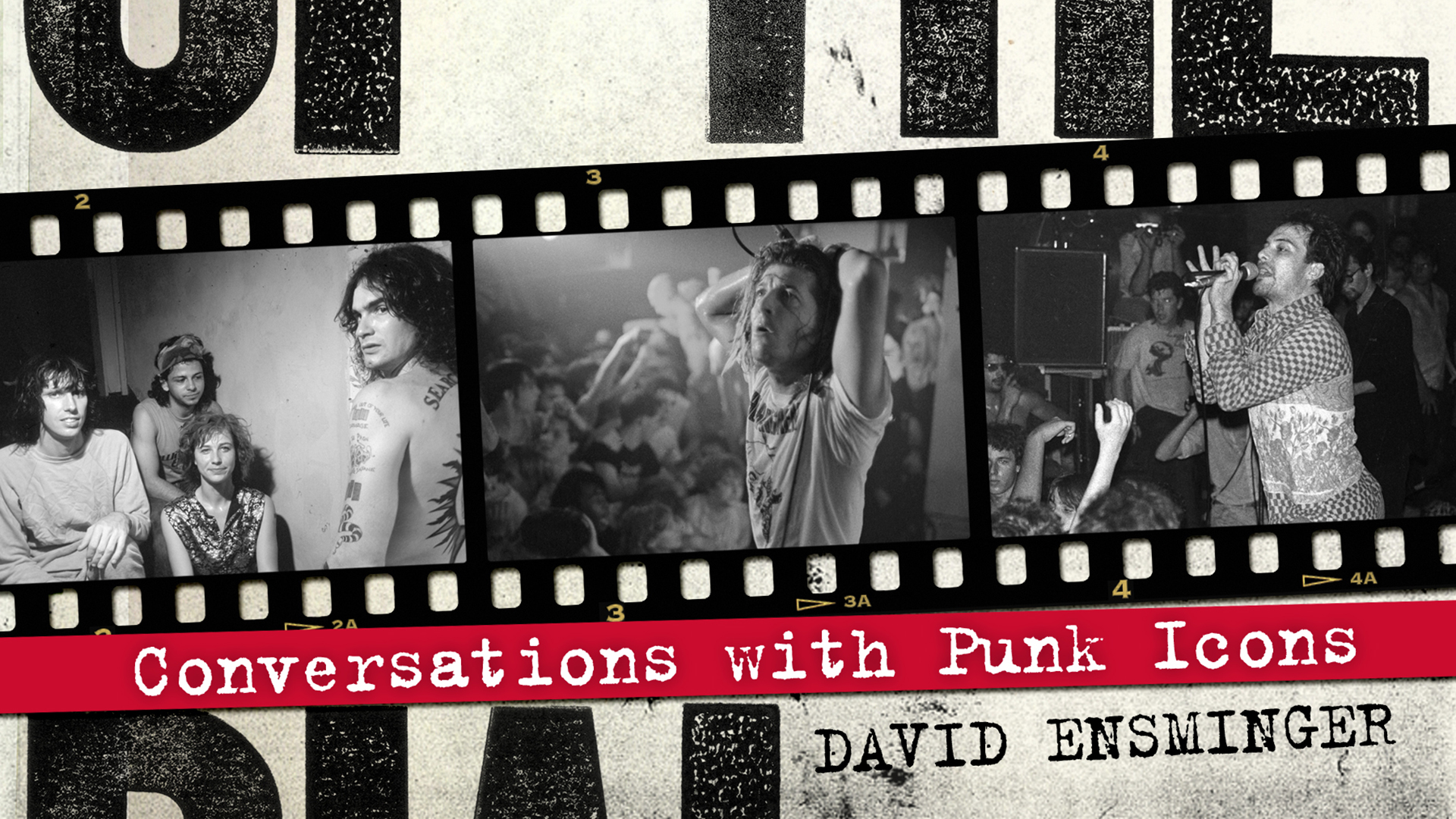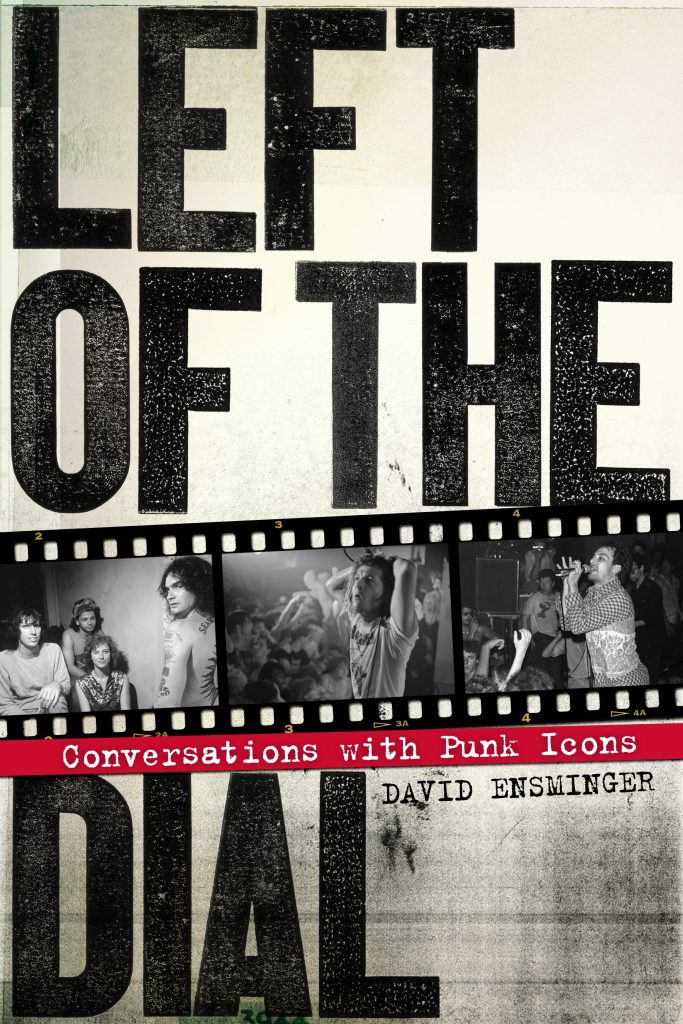Psychobabble
June 26th, 2013
Left of the Dial: Conversations with Punk Icons compiles twenty-two interviews David Ensminger conducted for such landmark ’zines as Thirsty Ear, Maximumrocknroll, and yes, his own Left of the Dial. My interest in his book was sparked by the inclusion of a chat with The Damned’s Captain Sensible, so I was slightly disappointed when I saw how brief that conversation was and how many post-first wavers comprised Ensminger’s anthology. My disappointment melted when I realized how fine an interviewer our host is and how insightful and articulate his selection of punk icons is.
Left of the Dial offers a fascinating range of experiences from such subjects as The Dils’ Tony Kinman, a first waver who lays out a near academic history of Rock & Roll, and Minuteman Mike Watt, who offers a harrowing account of the illness that nearly killed him. The diversity is impressive too as we get perspectives beyond the white, hetero dudes who constitute the prevailing punk stereotype to dig the experiences of what it’s like to be Latino (El Vez of The Zeros), female (Kira Roessler of Black Flag), gay (Gary Floyd of The Dicks), or black (Freak Smith of Beefeater) in the scene. Ensminger is a good interviewer too, respectful of his subjects but not afraid to call out the somewhat prickly Shawn Stern of Youth Brigade about the apparent weakness of the 1992 comeback record Come Again or query Lisa Fancher of Frontier Records on her sometimes-criticized business practices. Best of all is a riveting mini-oral history of San Francisco’s Deaf Club, an actual gathering place for hearing-impaired patrons to feel the beat from such performers as X, The Dils, Dead Kennedys, and a performance artist who’d receive an enema on stage.
My only gripe is that Ensminger could have oriented the reader better by indicating exactly when his interviews took place. It was a little jarring to be reading along only to discover that 9/11 had just taken place or Bush had just invaded Iraq. But that’s a pretty minor quibble about a selection of interviews so readable that I guess they now qualify as timeless.







